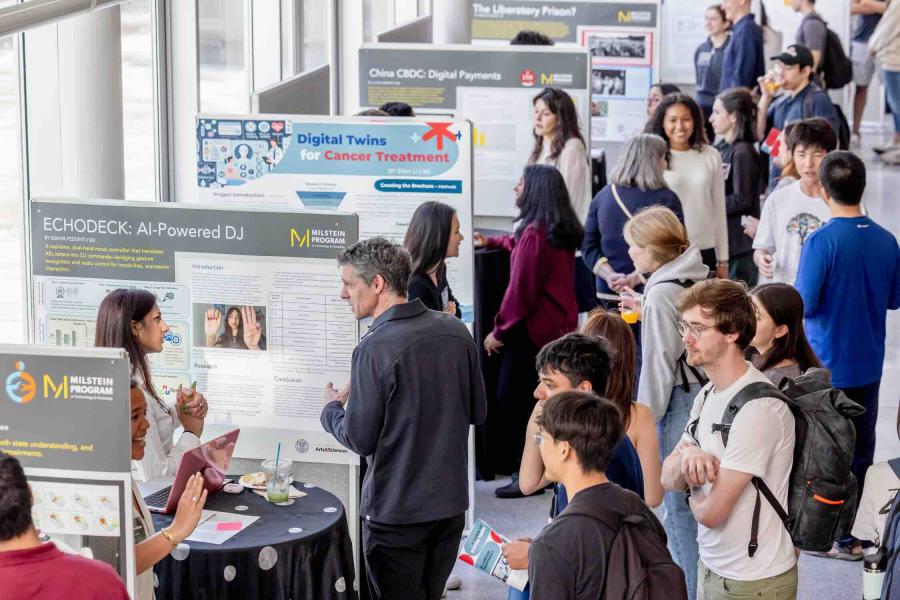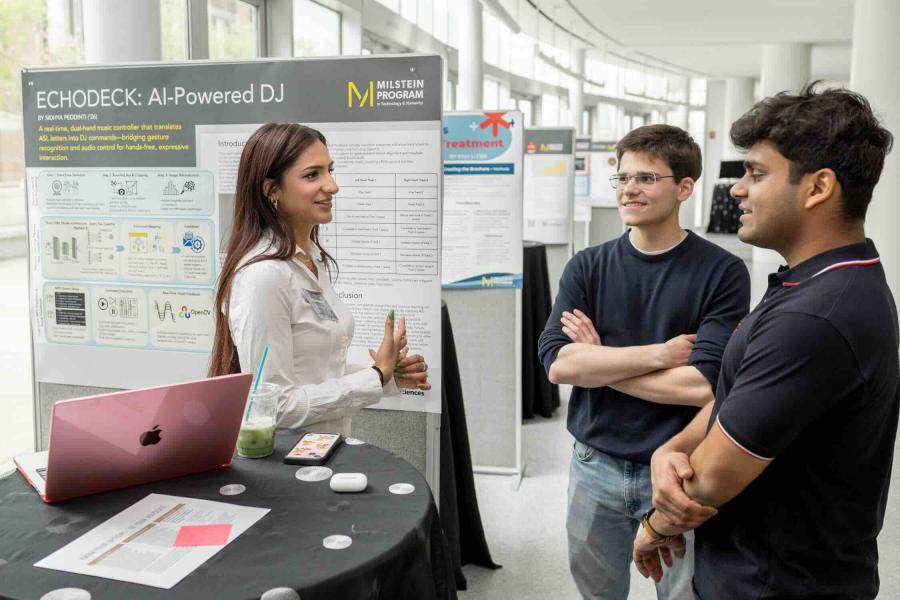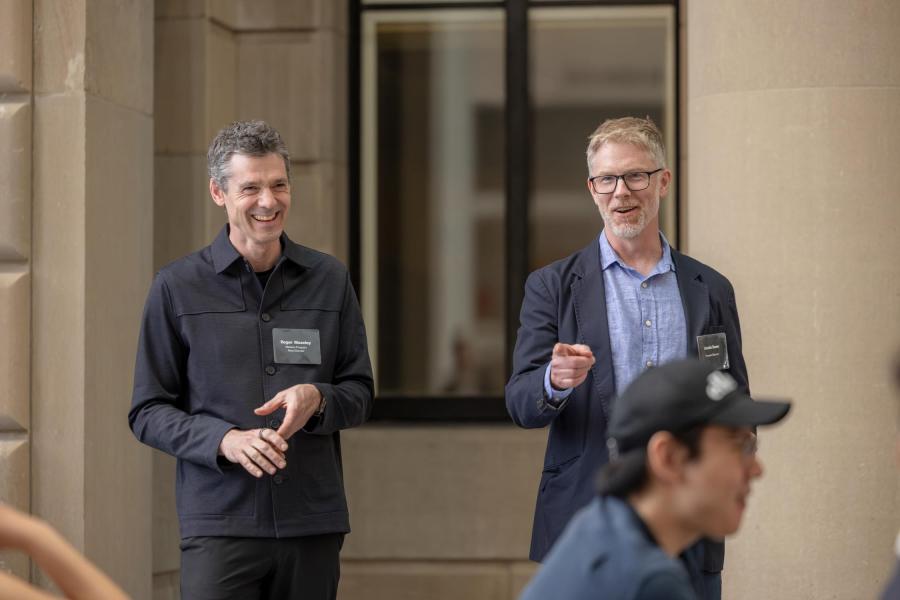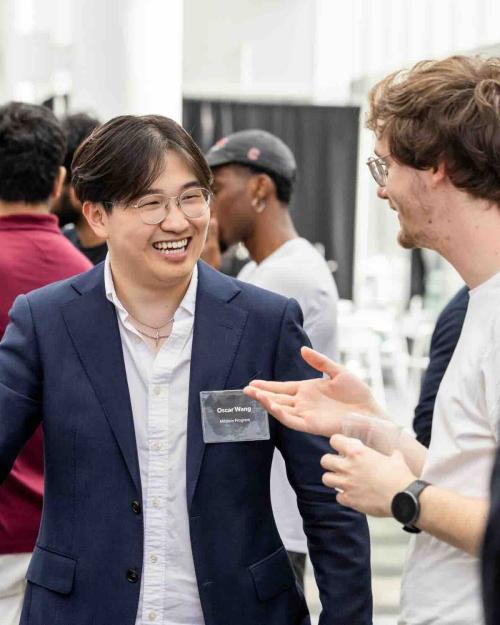The Milstein Program in Technology and Humanity hosted its annual Expo and dinner on May 2, showcasing research from 21 upperclass students and welcoming its new director.
The showcase reflected the Milstein Program’s mission helping students in the College of Arts & Sciences pursue ambitious, cross-disciplinary work. Projects spanned artificial intelligence, digital media, public policy and education; each one was student-driven and backed by program funding and mentorship.

Sean McInnis ‘26 built an automated matching tool for the Community Learning and Service Partnership (CLASP), a Cornell mentorship program between employees and students. McInnis’ tool cuts matching time from hours to just a few minutes.
The current process takes 7-10 hours for CLASP to match students and employees based on their schedule and interests. “I was focused on creating a computer program that could automate that,” McInnis said.
“My main approach was working directly with the users from the start,” he said. “Brainstorming with them, getting weekly feedback, making sure I had a very effective program.”
McInnis emphasized the interdisciplinary exposure of the program. “The Milstein Program exposes me to fields I wouldn’t know outside of my major.” His matching algorithm will be utilized in the CLASP office starting this September.

Sidhya Peddinti ‘26 showcased her project, EchoDeck, an AI-powered DJ system that transforms ASL hand gestures into real-time audio control.
“EchoDeck is a hands-free, expressive interface for digital music performance,” Peddinti said. “The idea was to replace traditional DJ hardware with something more intuitive and physically dynamic.”
EchoDeck tracks the user’s hand positions, translating them from ASL letters into DJ commands, including play/pause, skip and audio effects like crossfade. “For users with mobility challenges,EchoDeck proposes a new paradigm: embodied action as input,” Peddinti said.
Peddinti also proposed future directions for her project, including “customizable gesture mappings and support for users with different sensory needs.”
Oscar Wang ‘26 presented a project using diffusion models to generate 3D assets with AI, including a 3D visualization of Cornell’s campus.
“I definitely would not have gotten the inspiration to do this in the first place without talking to people in the Milstein Program,” Wang said. “It exposed me to the right people to talk to about this.”
Each student was backed by graduate student mentorship and access to funding. “The graduate student mentor helped with check-ins throughout the project,” Wang said. “I was able to ask her questions about where my project was heading, the feasibility of things like running our own diffusion model.”
Visiting Milstein Professor Andrew Piper said he was struck by the breadth of student creativity at the expo. “I was really impressed by student presentations,” said Piper, who is a professor and William Dawson Scholar in the Department of Languages, Literatures, and Cultures at McGill University. “They tackled a range of problems and were able to speak articulately about their work.”
Piper’s course, AI and Storytelling, encouraged students to consider the potential and limits of generative AI. “I’ve particularly enjoyed how the students in my class have plunged into their group projects,” he said. “I’m a big fan of learning by doing, and I think the students have responded in kind.”
“I went to a number of events this semester that I sincerely enjoyed. The students are very lucky to be part of this program,” Piper said. He directs a similar program, the interdisciplinary Bachelor of Arts and Science program, at McGill.

The expo was followed by a dinner in the Baker Portico and a talk by departing Milstein Program Director Austin Bunn, who reflected on the significance of the students’ work.
Calling the experience “a privilege,” Bunn said he felt like he had “gardened a field of
wildflowers,” watching each student develop a project uniquely their own. “I get to know students on a whole new level by seeing them shape an idea over the course of a year,” said Bunn, who is an associate professor in the Department of Performing and Media Arts.
“The Milstein Program gives students permission and a structure to pursue their passions,” Bunn said. “We seek out students who have initiative and self-direction and want to integrate what they’re learning in class into a creative, analytic or technical project of their design.”
Robert Moseley, associate professor of music, will take over as program director this summer and serve a three-year term.




